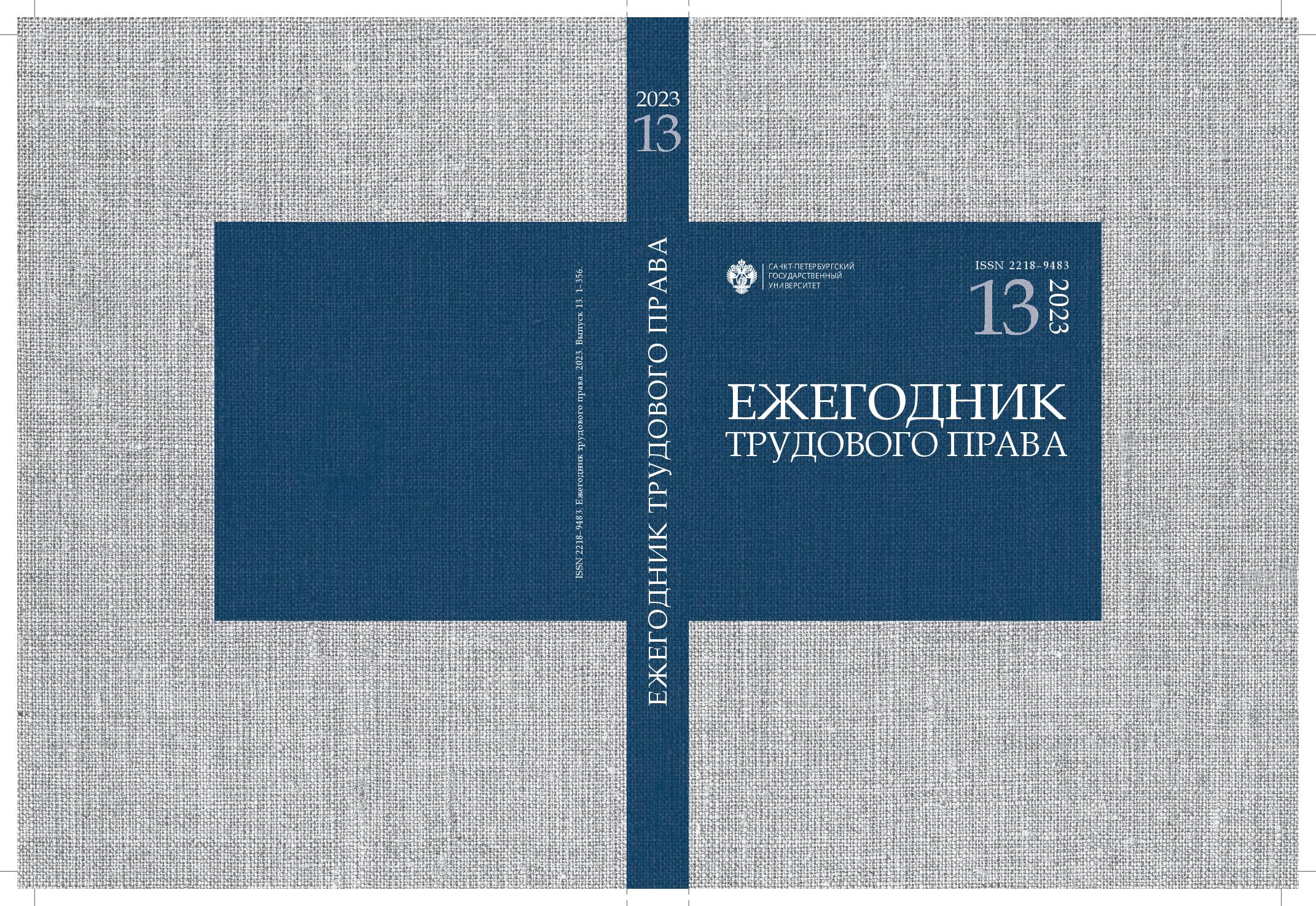The general aspects of collective labour rights for workers in Turkey
DOI:
https://doi.org/10.21638/spbu32.2023.121Аннотация
After Turkey's political system was transformed to a multi-party democracy, legally interpreted collective labour rights were introduced to the system by legal instruments. The first Trade Unions Act was enacted in 1947. Depending on the articles related to collective labour rights, stated in 1961 Constitution, the Turkish National Assembly passed two particular legislation in 1963, numbered 274 and 275. These codes governed labour unions and collective bargaining, as well as grievance procedures such as strikes and lockouts. The 1982 Turkish Constitution established collective bargaining and strike action as fundamental rights as well as the prior Constitution. For nearly three decades, collective labour rights have regulated by two different legislation, numbered 2821 and 2822. In 2012, new legislation was proposed to regulate collective labour relations and meet the necessities of the social parties. The Law of Trade Unions and Collective Labour Agreements (law numbered 6356) is the current principal legislative tool for dealing with trade unions and collective labour agreements, as well as strike and lock-out. In Turkish system, the formation of trade unions and employers' associations is based on a voluntary and free basis and requires no previous approval from administrative bodies. Employers' organizations and trade unions both have legal personality. A double threshold approach for trade unions to conduct collective bargaining has been criticized by the ILO on several occasions. Strikes are infrequently utilized as an industrial action, despite the fact that they are protected by the Constitution and the Law numbered 6356.
Ключевые слова:
trade unions, collective agreement, industrial action, collective labour relations, strike
Скачивания
Библиографические ссылки
References
Baycık, Gaye, Extension in European Union Member States and Recommendations for Turkey, Ankara 2019. (https://www.ilo.org/wcmsp5/groups/public/---europe/---ro-geneva/---ilo-ankara/documents/publication/wcms_683781.pdf)
Dereli, Toker: Labour Law and Industrial Relations in Turkey, Istanbul 1998.
Makal, Ahmet: Osmanlı İmparatorluğunda Çalışma İlişkileri: 1850-1920, Türkiye Çalışma İlişkileri Tarihi, Ankara 1997.
ILO: Report of the Committee of Experts on the Application of Conventions and Recommendations 2019.
Sur, Melda: İş Hukuku Toplu İlişkiler, Ed.10, Ankara 2022.
Yıldız, Gaye Burcu: Determining the Scope of Freedom of Association with regard to Right to Strike, Labour Law and Social Progress Holding the Line or Shifting the Boundaries?, The Netherlands, 2016, 301-312.
Yıldız, Gaye Burcu: The fundamental aspects of collective bargaining in Turkey: past, current and future, Peer Review on “The organisation, outcomes and effectiveness of social dialogue” Belgium, 23-24 October 2018. (peer review)
Yıldız, Gaye Burcu: Turkey: Enhancing Social Partners’ Capacity and Social Dialogue in The New World of Work; pgs 491-527; The New World of Work, Challenges Opportunities for Social Partners and Labour Institutions, ILO 2021
Загрузки
Опубликован
Как цитировать
Выпуск
Раздел
Лицензия
Статьи журнала «Ежегодник трудового права» находятся в открытом доступе и распространяются в соответствии с условиями Лицензионного Договора с Санкт-Петербургским государственным университетом, который бесплатно предоставляет авторам неограниченное распространение и самостоятельное архивирование.




